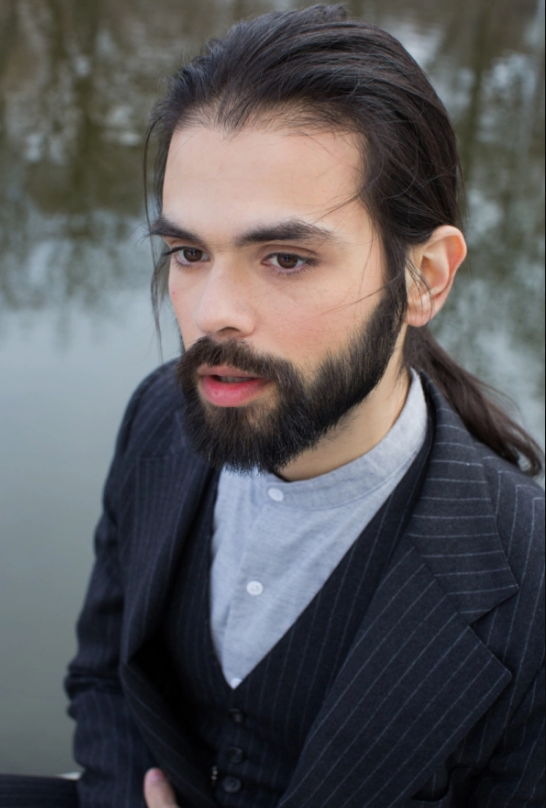BY ALEJANDRA O’CONNELL-DOMENECH | Gabriel Rodriguez’s show “Jack of Cups” asks audiences not just to worry about climate change but to do something about it.
Performed in the Pete, the ground-floor theater at The Flea Theater in Tribeca, “Jack of Cups,” begins on the Island of Higher Ground. That’s a stretch of land where humans gather each year to listen to the story of “the wave that ate the world,” told by a traveling storyteller, Jack of Cups (Rodriguez). In this post-apocalyptic world, land is scarce and communities are built around water-filtration systems.

Jack then tells his listeners their world’s creation story, as Effie (Kayla Yee) interprets the story through dance. He heard the story from an old witch named Ursula he met in faraway land called Sagebrush after some playing children led him to her home in a series of underground caves.
The audience then learns how this new world was born. When the Earth was inhabited by too many people with too much “extra stuff,” the ocean swallowed the Earth’s land.
Though certainly timely, a story about a world destroyed by humans admittedly is not new. But “Jack of Cups” offers a more hopeful ending to a world almost destroyed by climate change, and features a few tropes. Jack’s secondhand telling of how the Earth was destroyed and guidance from a group of children is reminiscent of the film “Mad Max: Beyond Thunderdome.” A world consumed by the ocean is extremely similar to the premise of the 1995 film “Waterworld,” where the majority of the planet is underwater after the polar ice caps melt.
But the importance of “Jack of Cups,” and why audiences should watch it, is how it pushes viewers away from being complacent when it comes to preventing climate change. Besides, according to the United Nations, humanity has less than 12 years to get its act together before irreversible damage from climate change.
Walking toward the performance space, audience members pass along a path of plastic rings cut from water bottles that leads to the theater’s backyard, which is decorated with towers of strung-together plastic water bottles.
At the end of the show, Jack addresses the audience and asks viewers to examine what “stuff” in their life is necessary. The show’s program is e-mailed to audience members, along with a link to a resource packet on how to disrupt, engage and redefine climate action in one’s community. It’s a reminder that everyone can take steps toward creating a better and cleaner world.
“Jack of Cups” will be performed at The Flea Theater, 20 Thomas St., until June 8. For more information and tickets, visit theflea.org































